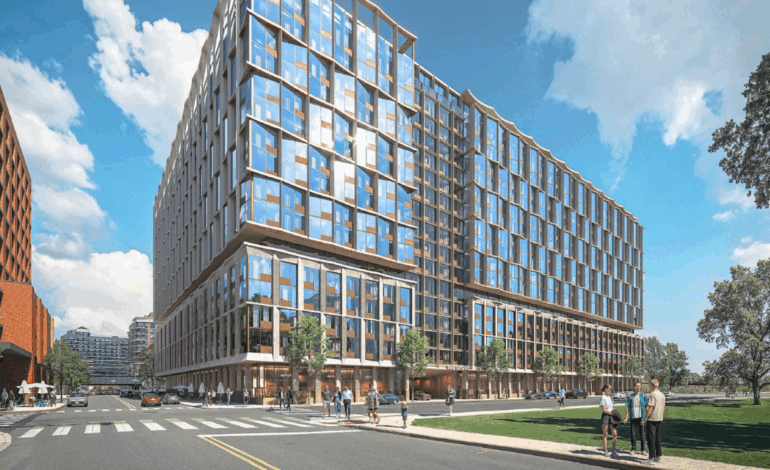Jersey City Planning Board Approves Towers, Greenway Overlay

UPDATE: The Jersey City Planning Board has just approved a crucial development along the Jersey City-Hoboken border, granting a three-year approval for a significant mixed-use project at 660 Grove St.. This decision comes after the board rejected a developer’s request for a 10-year preliminary site plan approval, which would have shielded the project from potential zoning changes for a decade.
The approved development entails two 17-story residential towers that will rise to just under 170 feet. The first tower will feature 542 rental units, with 15% set aside as affordable housing, translating to 81 apartments. The second tower will provide 458 units, including 69 affordable housing units aimed at low- and moderate-income residents. The mix will comprise studios, one, two, and three-bedroom apartments, aligning with the city’s inclusionary zoning ordinance.
During the board meeting, Acting Chair Vidya Gangadin expressed concerns about the lengthy approval period, stating, “Ten years is a decade and I think I’m safe to assume that this board likes to see whatever they approved constructed — and while they’re still on the board.”
In addition to the towers, the board also approved a Greenway Overlay aimed at creating a unified public access path along the Hackensack River. This initiative will coordinate private developments with the Hackensack River Greenway and Newark Bay, enhancing community access to this vital natural resource.
The Greenway project, currently under development, spans 19 miles and aims to connect various sections of the waterfront, some of which are currently disconnected or inaccessible. The approved overlay mandates that all new construction along the waterfront will require a Public Access Easement Agreement, ensuring that private developers cannot restrict public access to the Greenway.
The Planning Board’s decision to approve the Greenway Overlay is a significant step towards enhancing Jersey City’s waterfront, ensuring that both public spaces and private developments can coexist harmoniously.
Although the board was generally supportive of the 660 Grove Street project, they were surprised by the developer’s request for a longer preliminary approval. The developer’s attorney, Thomas P. Leane, noted that the project would include 350 parking spaces and 508 bike storage spaces to accommodate residents.
However, the developer did request to plant eight fewer trees than required, which raised concerns among community members. The project will result in only 15 trees being planted instead of the mandated 23, but Leane assured attendees that the developer would make a payment to plant those trees elsewhere in the city.
In a related note, a potentially controversial amendment regarding Jersey City’s inclusionary zoning law was postponed due to time constraints. This amendment would have clarified whether hotel rooms in mixed-use developments should count toward affordable housing quotas if converted to regular apartments.
As developments unfold in Jersey City, the community is urged to stay informed and engaged. The Planning Board’s decisions today set the stage for significant changes in the area, with impacts on housing, public access, and overall urban development.
Stay tuned for more updates as the Jersey City Council considers the Greenway Overlay and the future of the 660 Grove Street development.






